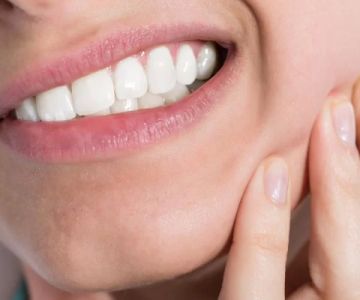How Tooth Discoloration Happens
Tooth discoloration is a common issue that many people face. It can be caused by a variety of factors, including poor oral hygiene, certain foods and drinks, smoking, or even aging. Understanding the causes of tooth discoloration is the first step in preventing it. In this article, we’ll explore how you can prevent tooth discoloration and maintain a healthy, bright smile through proper care and lifestyle choices.
1. Regular Brushing and Flossing
One of the most effective ways to prevent tooth discoloration is by practicing proper dental hygiene. Brushing your teeth at least twice a day with fluoride toothpaste and flossing daily can remove plaque and food particles that contribute to stains. Brushing helps to keep your enamel intact and free from the buildup of substances that cause discoloration, such as coffee, tea, and tobacco.
2. Avoiding Staining Foods and Beverages
Certain foods and drinks are known to stain teeth. These include coffee, red wine, tea, and berries. While it's not necessary to completely avoid these items, you can reduce the staining effect by drinking them in moderation and taking steps to rinse your mouth afterward. Additionally, using a straw for beverages like soda and iced coffee can reduce direct contact with your teeth, minimizing the risk of stains.
3. Quit Smoking
Smoking is one of the leading causes of tooth discoloration. The tar and nicotine found in cigarettes can cause severe stains on the teeth, turning them yellow or brown. Quitting smoking not only improves the color of your teeth but also has numerous health benefits. If you’re trying to quit, there are resources available to help, such as smoking cessation programs and counseling.
4. Use Whitening Toothpastes
Whitening toothpastes contain mild abrasives or chemicals designed to remove surface stains. While these products can help brighten your teeth over time, they are not a substitute for professional dental care. It’s important to consult your dentist to ensure that the whitening toothpaste you choose is suitable for your teeth and doesn’t cause enamel damage.
5. Regular Dental Checkups and Cleanings
Visiting your dentist for regular checkups and professional cleanings is an essential part of maintaining your smile. Dental cleanings remove tartar buildup, which can contribute to discoloration. Your dentist can also provide personalized advice and recommend treatments such as teeth whitening or fluoride treatments to prevent future staining.
6. Consider Professional Teeth Whitening
If over-the-counter whitening products aren’t giving you the desired results, you may want to consider professional teeth whitening treatments. A dentist can offer stronger, more effective whitening treatments that can remove deeper stains and give you a brighter smile. Professional treatments are customized to your needs and typically produce faster and longer-lasting results.
7. Stay Hydrated and Eat a Balanced Diet
Staying hydrated and eating a balanced diet are also essential for maintaining healthy, white teeth. Drinking water throughout the day helps wash away food particles and bacteria, preventing plaque buildup. Eating crunchy vegetables like carrots and celery can naturally scrub your teeth and remove surface stains. A diet rich in calcium, vitamin D, and antioxidants can also promote strong teeth and prevent discoloration.
8. Be Aware of Medications That Cause Discoloration
Certain medications can contribute to tooth discoloration. Antibiotics, antihistamines, and blood pressure medications are known to cause staining or affect the color of your teeth. If you are concerned about how a medication may impact your teeth, consult your healthcare provider for alternatives or solutions that can help prevent staining.
9. Use a Mouthwash with Whitening Properties
Incorporating a mouthwash that contains whitening agents into your oral care routine can help prevent tooth discoloration. Mouthwashes with fluoride and whitening agents can help remove surface stains and prevent future buildup. Make sure to use mouthwash as part of your overall dental hygiene routine for the best results.
10. The Role of Genetics in Tooth Color
While lifestyle habits play a significant role in tooth discoloration, it’s also important to note that genetics can influence the natural color of your teeth. Some people may have naturally whiter or darker teeth, and even with optimal care, it may be more challenging to achieve a dramatically lighter shade. However, with proper care and lifestyle choices, you can still prevent further staining and maintain a bright smile.
Conclusion
Preventing tooth discoloration requires a combination of good habits, regular dental visits, and mindful lifestyle choices. By following the tips mentioned above, you can maintain a healthy, white smile and avoid the factors that contribute to discoloration. If you're concerned about the color of your teeth or have experienced significant staining, consult with a dental professional who can offer tailored advice and treatment options. Healthy teeth contribute to your overall health and boost your confidence, so don’t neglect the importance of proper care!







 Westgate Dental Arts
Westgate Dental Arts Coventry Family Dental
Coventry Family Dental Familia Dental
Familia Dental Dr. Daniel S. Fife, DDS
Dr. Daniel S. Fife, DDS Dentistry At Suburban Square: Michael I. Wollock, DMD
Dentistry At Suburban Square: Michael I. Wollock, DMD Comfort Care Dental
Comfort Care Dental The Importance of Oral Health Education During Pregnancy for a Healthy Pregnancy
The Importance of Oral Health Education During Pregnancy for a Healthy Pregnancy Why Skipping Dental Checkups Can Lead to Bigger Oral Health Problems
Why Skipping Dental Checkups Can Lead to Bigger Oral Health Problems Advantages of Porcelain Dental Restorations
Advantages of Porcelain Dental Restorations Best Tips for Brushing Your Teeth Properly for Healthy Gums: Essential Techniques for Oral Health
Best Tips for Brushing Your Teeth Properly for Healthy Gums: Essential Techniques for Oral Health How Can Diabetes Cause Tooth and Gum Problems? Preventing and Managing Oral Health Issues
How Can Diabetes Cause Tooth and Gum Problems? Preventing and Managing Oral Health Issues Healthy Habits for Promoting Good Oral Health and Hygiene: Tips for a Healthy Smile
Healthy Habits for Promoting Good Oral Health and Hygiene: Tips for a Healthy Smile